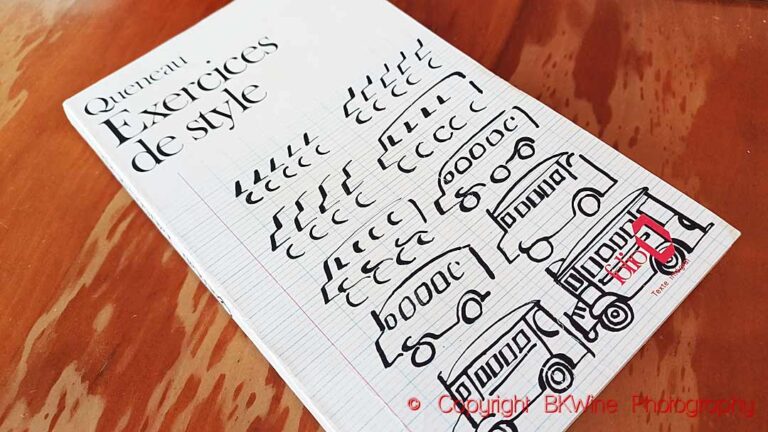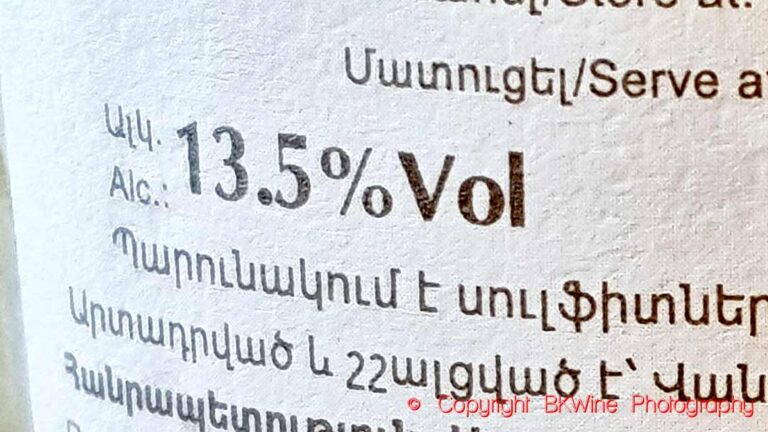
No, it is not the title of a new thriller novel.
“Good wine is made in the cellar, but exceptional wine is made in the vineyard,” Stellios Boutaris of Greece’s Kir-Yanni Estate told us back in 2008. Since then, we have often heard similar statements, such as “80-90% of the wine’s quality comes from the vineyard”. But doesn’t this underestimate the role of the winemaker? In fact, doesn’t the work after the actual harvest perhaps matter just as much?
There was a time – the 1990s, the early 2000s – when new, impressive wineries and well-trained winemakers popped up like mushrooms. The chemistry of the wine suddenly took centre stage. Consultants and new oak barrels had their heyday. The focus was on the work in the cellar.
Then came the backlash. Attention was instead directed towards the vineyard, a trend that was reinforced as the organic movement grew and awareness of climate change increased. The focus turned to what the vine needed. How can we reduce spraying? How can we improve the biodiversity in this monoculture that vineyards are? And here we are today.
Without excellent raw material, there is no good wine. The ability to harvest fine grapes at the end of the season, with enough ripeness, undamaged and preferably in the good quantities so that the winery can survive economically (another facet of sustainability), requires meticulous work in the vineyard. The recent weeks of persistent rain in some parts of France are a reminder of the importance of being observant, attentive, and able to react quickly. For instance, you must promptly get the vineyard sprayer out between rain showers to save the future harvest. Fungal diseases (e.g. downy mildew) and mouldy grapes do not produce good wines.
However, an excellent raw material, be it grapes or other foodstuff, requires the touch of a skilled winemaker/chef to transform it into a wine or a delicious dish. The result is not guaranteed to be good. The expressions we often hear today, such as “the wine is made in the vineyard”, are frequently accompanied by the notion of “not doing much in the cellar”, “the wine makes itself if you let it”. But the truth is, a good wine does not magically appear just because the grapes are flawless. It might not even become wine at all. As Patrick Pagès, a winemaker in Bordeaux, once said, “wine does not exist without man”.
If you hear this – “I don’t want to influence”, “I don’t want to do much” – all the time, you can easily get the wrong impression – that the winemaker spends his time in the hammock. I don’t think you make good wine on routine. In fact, it is probably quite hard work. And it doesn’t get any easier if you don’t want to use the technical tools that are available. There is a lot that can go wrong during the vinification. If the winemaker prefers low intervention this may instead require more observation and monitoring. If you don’t want to correct something afterwards, you must ensure nothing goes wrong from the very start.
Since I now sing the winemaker’s praise, another thing to point out is the combination of “modest” vineyard land (low-status appellations or no appellation at all) and a skilled winemaker. It can make fantastic wines. And quite the opposite, the fact that it says Grand Cru or similar (presumably an exceptional vineyard) on a bottle does not automatically make it unforgettable if the winemaker doesn’t have the right talent..
The winemaker is more important than just a paltry 10-20%.
Sure, the earthworms in the soil are important, but let’s also pay tribute to the real hero, the winemaker.
Wine tours
If you want to join us on this years great adventures to Bordeaux and Champagne, book your places now. You can hardly find a wine tour organiser with more inside knowledge. First time we were in Bordeaux was in 1986. We’ve written twelve wine books, including wine internationally award winning on Champagne. We travel in wine regions…… all the time.
For some very special experiences – once in a life-time wine tours – you can join us next winter on the extended Southern Hemisphere Tours: Chile-Argentina, South Africa and New Zealand.
More info on our wine tours here. “World’s Top Wine Tours“. Tours with the people who know wine and who have an unrivalled experience of wine and tours.
Travel in wine regions with someone you trust.
Enjoy the Brief!
Britt & Per
Wine editors to the national encyclopedia, Forbes.com contributors, award-winning wine book authors, wine tour advisors to the UN and national wine organisations, wine judges … and, above all, passionate wine travellers.
If you appreciate what we do, you can help us: Tell your friends about the Brief or send it to them.
Like us and follow us on social media:
BKWine Magazine on Facebook | Wine Tours on Facebook
Twitter | Instagram | Linkedin | YouTube
This is just the introduction to the latest issue of the Brief. Subscribe to the BKWine Brief and you will get the whole edition in your mailbox next month.
What’s on at BKWine Tours
BKWine is also one of the world’s leading wine tour operators. Here’s what we currently have on our scheduled wine tour program:
- Champagne, 25-29 September
- Bordeaux and Champagne, 25 Sept – 3 Oct
- Bordeaux, 29 Sep – 3 Oct
- Chile-Argentina, 13-26 January 2025
- South Africa, 14-24 February 2025
- New Zealand, 11-26 March 2025
We also make custom designed wine tours.
We’re different than most other wine tour operators. We are people who know wine inside out, who travel constantly in wine regions, who write award winning books about wine. Who do this out of passion. Our tours are different from others. More in wine tours: BKWineTours.com.











